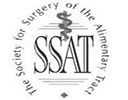Barrett's Oesophagus
The oesophagus is the muscular pipe that carries food from the mouth to the stomach. Barrett's oesophagus is a condition characterised by changes in the cells lining the lower oesophagus. Barrett's oesophagus is closely associated with gastro-oesophageal reflux disease (GORD), a condition where the stomach's contents rise up from the stomach into the oesophagus. Food mixed with the stomach's digestive acids can irritate and damage the oesophagus. Recurrent entry of these liquids leads to the changes in the oesophageal lining called dysplasia. Barrett's oesophagus is a pre-cancerous condition however, it can occasionally lead to oesophageal cancer.
Barrett's oesophagus usually doesn't cause specific symptoms. People with GORD may experience a variety of symptoms including heartburn, a bitter or sour taste in the mouth, trouble swallowing, nausea, dry cough or wheezing, regurgitation of food, hoarseness or change in voice and chest pain.
An endoscopic examination of the oesophagus is recommended for people with severe gastro-ooesophageal reflux symptoms. Endoscopy allows the doctor to examine the inside of your oesophagus, stomach and portions of the intestine with an instrument called an endoscope, a thin flexible telescope. The diagnosis of Barrett's oesophagus is based on the presence of pink coloured tissue lining the lower oesophagus. A biopsy (sample of tissue studied under the microscope) may show dysplastic changes in the cells lining the lower oesophagus.
The treatment options for Barrett's oesophagus include
- GORD treatment:
-Antacids: over-the-counter medicines that provide temporary relief to heartburn and indigestion by neutralizing acid in the stomach
-Other medications: PPI (Proton pump inhibitors) drugs reduce the production of acid in the stomach
-Surgery: Fundoplication
- Surveillance or Monitoring: If you have been diagnosed with Barrett's oesophagus, your doctor may advise you to undergo endoscopy and biopsy at frequent intervals to monitor the condition.
- Surgery: Oesophagectomy refers to the removal of the affected part of the oesophagus.
Other treatments include laser therapy, radiofrequency ablation and photodynamic therapy (PDT).


















